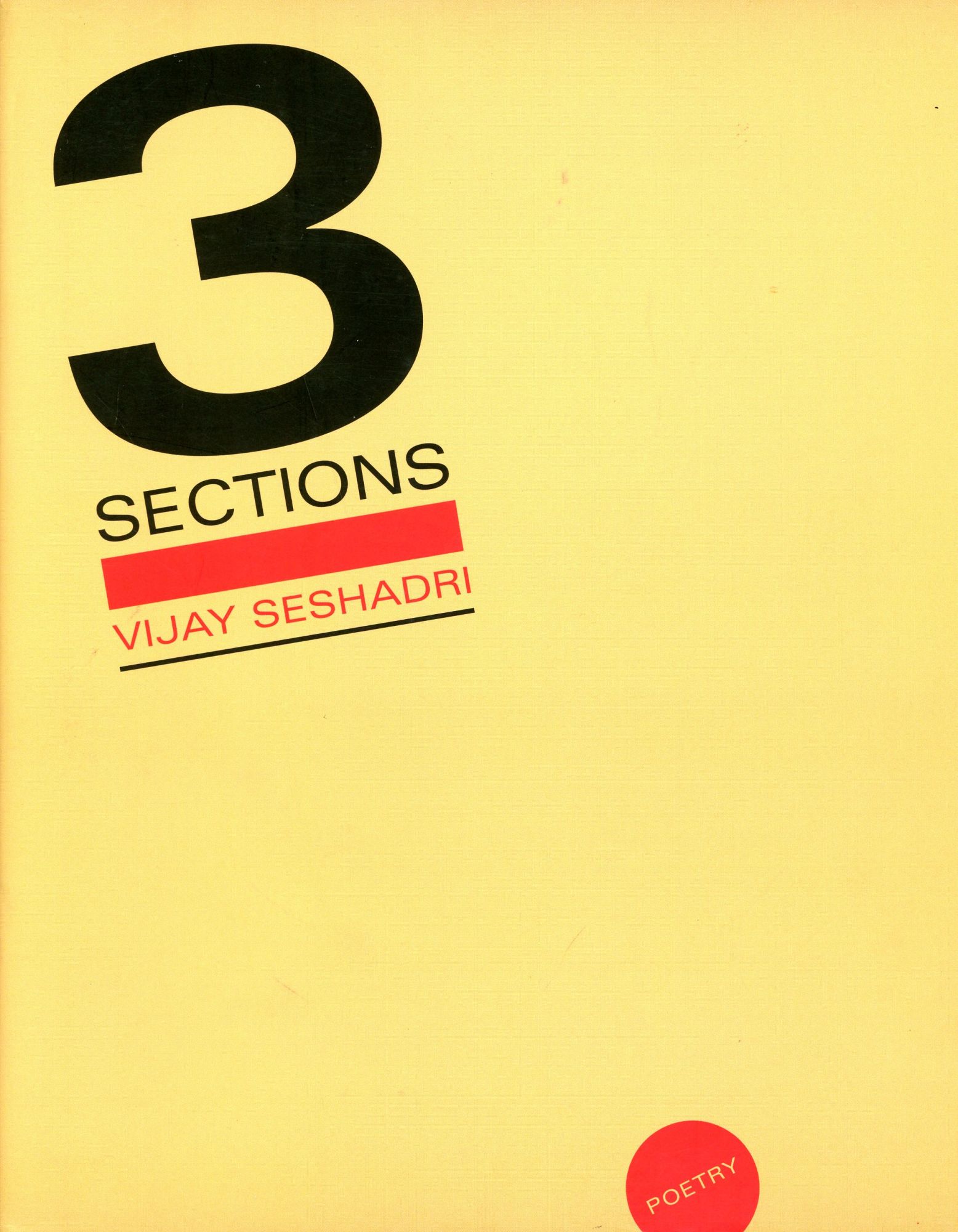Due poesie di Vijay Seshadri da 3 Sections, Graywolf Press, 2013. Traduzioni inedite di Filippo Naitana.
Memoir
Orwell dice da qualche parte che nessuno scrive la vera storia della propria vita.
La vera storia di una vita è la storia delle sue umiliazioni.
Se scrivessi quella storia ora–
radioattiva fino alla fine dei tempi–
miei cari, lo giuro, gli occhi vi schizzerebbero fuori dalle orbite, non potreste scollarvi
i guanti abbastanza in fretta
dalle mani ustionate dalle tempeste di fuoco della vergogna.
Povere le vostre mani. Poveri i vostri occhi
a vedermi piangere nella mia stanza
o annoiare a morte una bionda slanciata.
Una volta ho accusato gli innocenti.
Una volta mi sono inchinato e ho pregato i colpevoli.
Ancora sussulto al pensiero di ciò che ho detto a una vedova affranta.
E un pomeriggio di ottobre, sotto un carrubo
i cui baccelli anneriti cadevano creando
disegni rivelatori sul sentiero,
sono stato colto dalla gioia
e qualcuno mi ha scorto,
ed è stata la cosa peggiore di tutte,
lacerante e indimenticabile.
*
Memoir
Orwell says somewhere that no one ever writes the real story of their life.
The real story of a life is the story of its humiliations.
If I wrote that story now—
radioactive to the end of time—
people, I swear, your eyes would fall out, you couldn’t peel
the gloves fast enough
from your hands scorched by the firestorms of that shame.
Your poor hands. Your poor eyes
to see me weeping in my room
or boring the tall blonde to death.
Once I accused the innocent.
Once I bowed and prayed to the guilty.
I still wince at what I once said to the devastated widow.
And one October afternoon, under a locust tree
whose blackened pods were falling and making
illuminating patterns on the pathway,
I was seized by joy,
and someone saw me there,
and that was the worst of all,
lacerating and unforgettable.
***
Seguendo nuvole di gloria
Anche se sono un immigrante,
l’angelo con la spada infuocata non mi dispiace.
Sgancia la corda di velluto. Mi accompagna dentro il club.
Un po’ di movimento nella fossa accalcata, un banchetto qui, un mendicante lì,
una tenda grigia tirata giù sopra la lunetta che si curva all’infinito,
Giove nella sua fase crescente, immenso,
una vista di cascata, con un arcobaleno fra gli spruzzi,
alcune orge sconnesse, un cartellone pubblicitario
della pretenziosa macchina elettrica del futuro–
l’interno è identico all’esterno,
fino all’M.C. nelle ghette gialle.
Perché dunque l’angelo con la spada infuocata
che porta dentro le pecore e allontana le capre,
e gli uomini con i binocoli,
coi gomiti poggiati sulle sbarre cilindriche delle jeep
che scrutano il deserto? C’è un confine,
ma non è fisso, trema, si scuote, si leva
sprofonda nell’inimmaginabile settima dimensione
prima di eruttare in un campo di granoturco del Dakota. Sulla linea F
per Manhattan ieri ero seduto di fronte
a una famiglia di tre Guatemaltechi, a giudicare dall’aspetto–
delicato, arcaico e Maya–
e chiaramente clandestini fino al midollo.
Non sembravano ansiosi. La madre rideva
faceva tiremmòlla con la figlia
per l’imitazione di uno smart phone col quale giocavano assieme
a un videogioco. Il figlio, che avrà avuto tre anni,
disdegnava il loro trambusto. Ho riconosciuto il cipiglio sul suo volto,
il retrospettivo, nudo furore della nascita.
Sembrava mio figlio quando è venuto fuori da sua madre
dopo trenta ore di travaglio– la testa schiacciata,
le labbra gonfie, la pelle arrossata e orribile
per il sangue e la placenta. Fuori dal tunnel ardente
e dentro la fredda stanza di suoni duri.
Mi ha guardato dritto negli occhi con quei suoi occhi appannati.
Aveva una voce alla Richard Burton.
Aveva una conoscenza impressionante della letteratura Inglese.
Io farò cose tali, quali ancora non so,
ma saranno il terrore in terra, ha detto.
Il bambino, ha detto, è padre dell’uomo.
*
Trailing Clouds of Glory
Even though I’m an immigrant,
the angel with the flaming sword seems fine with me.
He unhooks the velvet rope. He ushers me into the club.
Some activity in the mosh pit, a banquet here, a panhandler there,
a gray curtain drawn down over the infinitely curving lunette,
Jupiter in its crescent phase, huge,
a vista of a waterfall, with a rainbow in the spray,
a few desultory orgies, a billboard
of the snub-nosed electric car of the future—
the inside is exactly the same as the outside,
down to the m.c. in the yellow spats.
So why the angel with the flaming sword
bringing in the sheep and waving away the goats,
and the men with the binoculars,
elbows resting on the roll bars of jeeps,
peering into the desert? There is a border,
but it is not fixed, it wavers, it shimmies, it rises
and plunges into the unimaginable seventh dimension
before erupting in a field of Dakota corn. On the F train
to Manhattan yesterday, I sat across
from a family threesome Guatemalan by the look of them—
delicate and archaic and Mayan—
and obviously undocumented to the bone.
They didn’t seem anxious. The mother was
laughing and squabbling with the daughter
over a knockoff smart phone on which they were playing a
video game together. The boy, maybe three,
disdained their ruckus. I recognized the scowl on his face,
the retrospective, maskless rage of inception.
He looked just like my son when my son came out of his mother
after thirty hours of labor—the head squashed,
the lips swollen, the skin empurpled and hideous
with blood and afterbirth. Out of the inflamed tunnel
and into the cold room of harsh sounds.
He looked right at me with his bleared eyes.
He had a voice like Richard Burton’s.
He had an impressive command of the major English texts.
I will do such things, what they are yet I know not,
but they shall be the terrors of the earth, he said.
The child, he said, is father of the man.
Vijay Seshadri è nato a Bangalore, in India, nel 1954 e si è trasferito negli Stati Uniti all’età di cinque anni. È autore delle raccolte poetiche Wild Kingdom, The Long Meadow, The Disappearances e 3 Sections, oltre che di numerosi saggi, recensioni e frammenti di memorie. Il suo lavoro è stato ampiamente pubblicato ed antologizzato, e ha ottenuto importanti riconoscimenti. Nel 2014 ha vinto il premio Pulitzer per la poesia e nel 2015 il premio per la letteratura dell’American Academy of Arts and Letters. Ha studiato all’Oberlin College e alla Columbia University, e attualmente insegna al Sarah Lawrence College.

